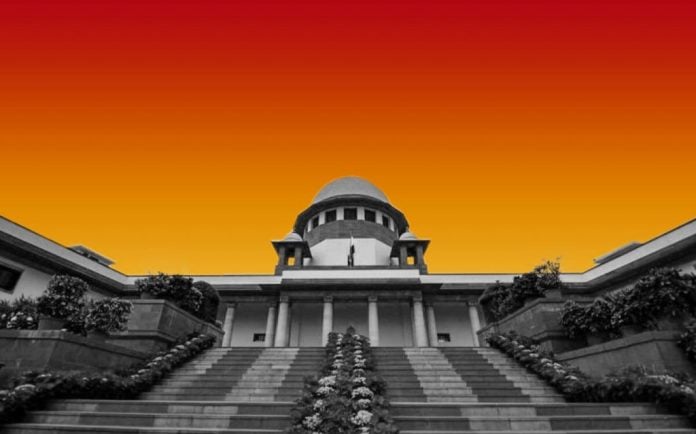The Supreme Court of India has today decided to list the matter related to the Unlawful Assembly Protection Act, 1967 (UAPA), for 18th October.
The Bench of CJI U.U Lalit, Justice Ravindra Bhat and Justice J.B Pardiwala, of the Supreme Court, while hearing a plea which challenged the validity of the provisions of Unlawful Assembly Protection Act, 1967 (UAPA) said in the court.
The petitioner side was represented by the Senior Advocate Arvind Datar who apprised the Court of two more connected matters, in which two journalists have been directly affected by the provisions of the Court.
The Court has issued notices to be sent accordingly to the counsels who shall appear in the connected matters.
This matter pertains to the provisions under the UAPA, which go against the freedom guaranteed by the Articles 14, 19 and 21 of the Indian Constitution.
The Act was contradicts the Constitution of India, and curtails the freedom of speech, by restricting all forms of dissents and opinions.
It states that the provisions of the Act are designed to curtail any and all forms of dissent and opinions regarding the governing party, and therefore constitute an assault of the freedom of speech and expression.
It further submits that the definitions of unlawful activity and terrorist act do not mandate, any expression of personal opinions regarding the issue of governance, cession, or secession may incite sanction by the government under the Act.
The Advocate who represented petitioners also said that the definition of ‘unlawful activity’ includes “disaffection against India” which does not have a defined meaning under the Act and can be used to target anyone against whom the government harbours a grudge to someone who may have a contrary point of view.
It was also submitted that ‘unlawful activity’ as a category exists only for the State to quell opposition, which in any sense is arbitrary and undemocratic.
It is extremely important to note that for the past few years we have experienced and witnessed ,a strong criticism and vehement opposition to UAPA and the provisions related to it.


